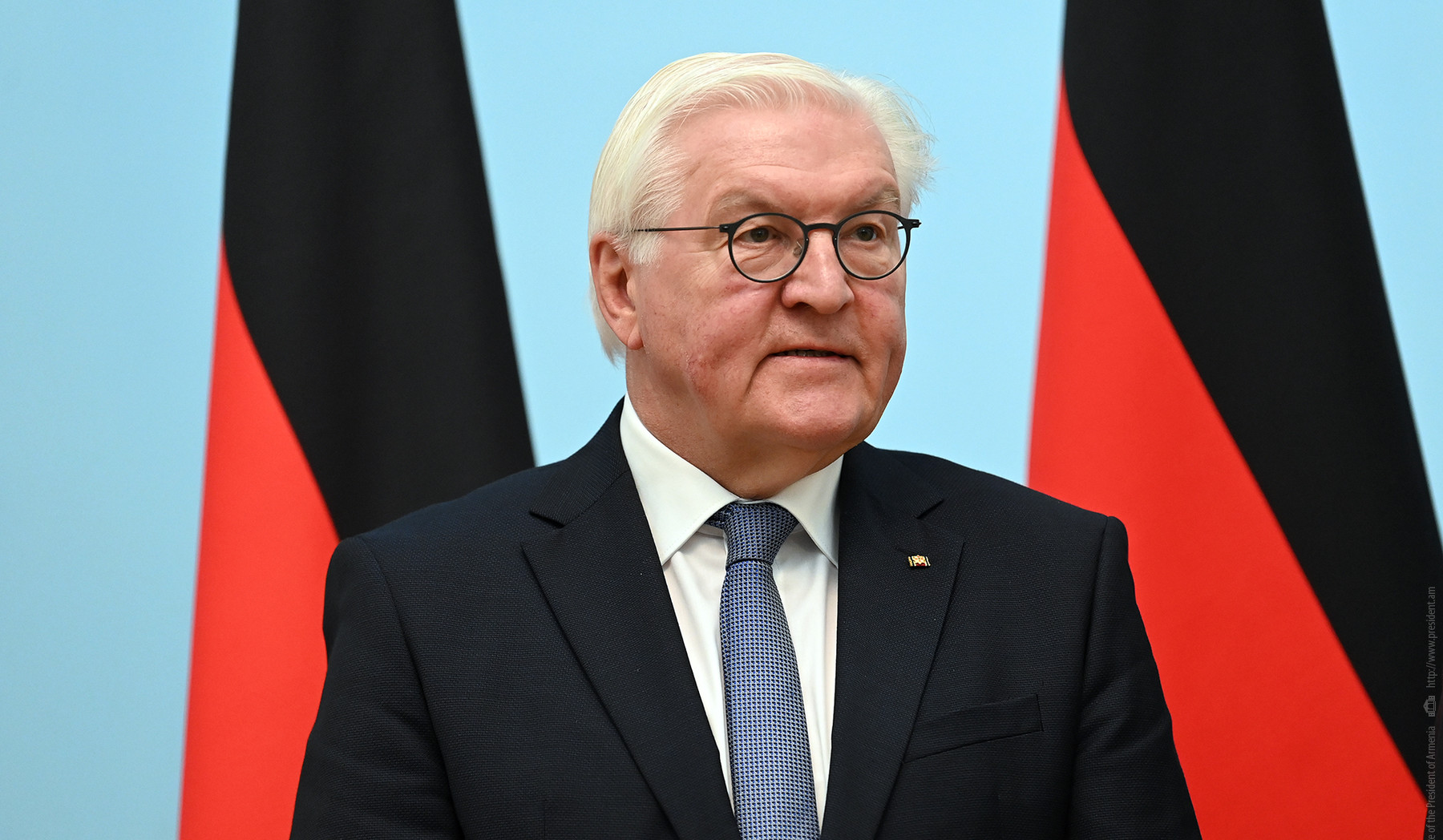Economic Focus: In Armenia, the emphasis was placed on strengthening ties with the EU and supporting democratic reforms, whereas in Azerbaijan, the focus was on energy and bilateral investment projects.
Peace Settlement: In both countries, the normalization of relations was discussed, but in Baku, this issue received more attention in the context of signing a peace agreement.
Cultural and Social Aspect: In Armenia, Steinmeier focused on educational initiatives, while in Azerbaijan, the emphasis was on interfaith dialogue and tolerance.
Steinmeier in the South Caucasus: Germany Strengthens Diplomatic Efforts

Today, German President Frank-Walter Steinmeier concluded his historic visit to the South Caucasus, visiting Armenia and Azerbaijan sequentially. This tour marked an important diplomatic step by Berlin aimed at strengthening ties with both states and supporting peace initiatives in the region.
In Armenia, Steinmeier met with President Vahagn Khachaturyan and Prime Minister Nikol Pashinyan. The negotiations focused on deepening trade and economic ties, where Germany plays a key role as Armenia’s main partner among EU countries.
Special attention was given to supporting democratic reforms aimed at strengthening the rule of law and civil society institutions. Regional initiatives were also discussed, including the "Crossroads of Peace" project, which aims to unblock transportation links in the South Caucasus.
As part of the visit, the German president visited educational and cultural institutions, demonstrating Berlin’s commitment to the development of social and humanitarian projects in Armenia.
In Azerbaijan, Steinmeier held talks with President Ilham Aliyev, where the key topics were economic cooperation and the promotion of a peace agreement between Baku and Yerevan.
Germany is showing increasing interest in Azerbaijan’s energy sector, viewing it as an important partner in diversifying Europe’s energy supply. Additionally, the parties discussed prospects for infrastructure projects and trade development.
A special emphasis was placed on the peace process between Azerbaijan and Armenia. In the context of post-conflict settlement, Berlin supports diplomatic efforts to conclude a comprehensive peace agreement.
Thus, the following comparative analysis can be drawn from Steinmeier’s visits to Armenia and Azerbaijan:
Germany’s diplomatic activity in the region indicates Berlin’s desire to strengthen its influence in the South Caucasus, particularly in peace settlement efforts. However, the success of these initiatives largely depends on the willingness of both sides to compromise.
Unresolved issues remain, such as territorial disputes and internal political reforms, but Steinmeier’s visits have demonstrated that Germany intends to play a key role in stabilizing the region. In the future, we can expect an expansion of economic cooperation and greater EU involvement in peace processes.
Expert Group CCBS
 Latest news
Latest news Latest news
Latest newsGreece Plans to Exclude Turkiye from Future Defense Contracts
20.Feb.2026
U.S.-Based Mars Launches Major Investment Project in Kazakhstan
20.Feb.2026
Parliamentary Elections 2026 in Armenia as a Geopolitical Referendum
20.Feb.2026
Russia and Ukraine Fail to Reach Agreement in Geneva
19.Feb.2026
The South Caucasus in U.S. Foreign Policy: Implications of High-Level Visits for Russian and Chinese Regional Aspirations
18.Feb.2026
Ukraine Imposes Personal Sanctions on Belarusian President Alexander Lukashenko
18.Feb.2026
72% Against the Authorities: Economic Dissatisfaction Hits Record Levels in Turkiye
17.Feb.2026
Bulgaria Strengthens Defense: First American Stryker Vehicles Delivered
17.Feb.2026
Moscow Criticizes Plans to Build a U.S.-Backed Nuclear Power Plant in Armenia
16.Feb.2026
Washington expects Tbilisi to strengthen ties amid regional changes
15.Feb.2026

 28 Feb 2026
28 Feb 2026









